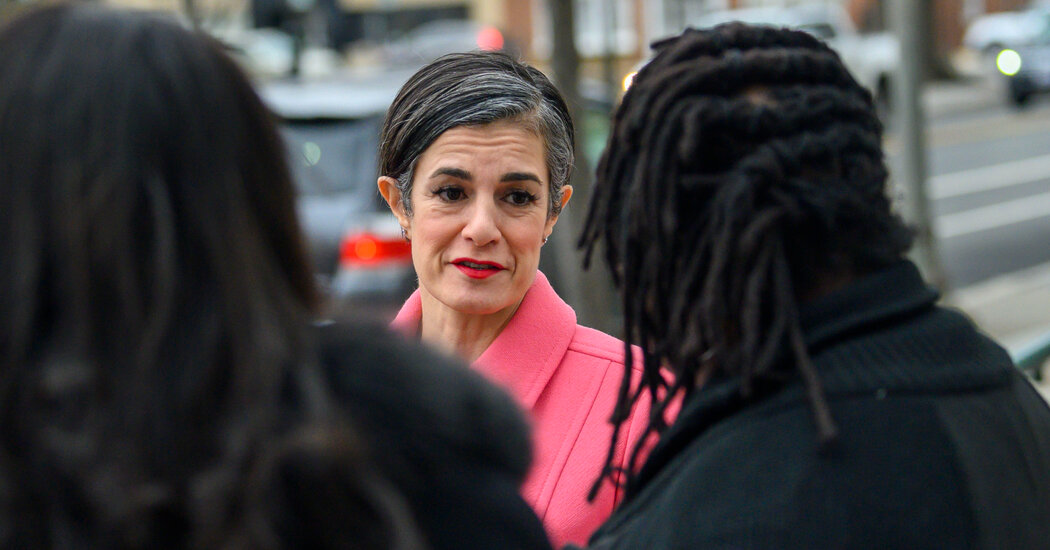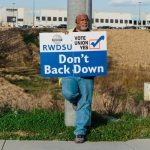
WASHINGTON — A Republican-linked group said on Monday that it was beginning a recall campaign backed by undisclosed donors to brand Democrats and their allies as soft on crime by targeting progressive prosecutors.
The initial focus is three prosecutors who were elected in the affluent Northern Virginia suburbs of Washington in 2019 amid a national wave of pledges by Democrats to make law enforcement fairer and more humane.
The group, Virginians for Safe Communities, said the targets of the recall effort were Buta Biberaj of Loudoun County, Parisa Dehghani-Tafti of Arlington County and Steve Descano of Fairfax County, all of whom hold the position of commonwealth’s attorney.
The campaign faces uncertain prospects, starting with clearing signature-gathering requirements and legal hurdles.
But the organizers described it as part of a broader national push to harness voters’ concerns about rising crime rates in cities and a backlash to anti-police sentiment.
“All things in politics have their time, and now is the moment that people who are for law enforcement have woken up,” said Sean D. Kennedy, a Republican operative who is the president of Virginians for Safe Communities. He called the recall efforts in Northern Virginia a “test case to launch nationwide.”
He said the group had raised more than $250,000, and had received pledges of nearly another $500,000. He would not reveal the identities of donors to the group, which is registered under a section of the tax code that allows nonprofit groups to shield their donors from public disclosure.
Mr. Kennedy, who has worked for Republican campaigns and committees, is an official at the Law Enforcement Legal Defense Fund, but he said the new group was independent from that one. Others involved in the new group include the former F.B.I. official Steven L. Pomerantz and Ian D. Prior, who was an appointee at the Justice Department during the Trump administration and before that worked for well-funded Republican political committees.
Mr. Kennedy cast Virginians for Safe Communities as something of an antidote to a political committee funded by the billionaire investor George Soros, a leading donor to Democratic causes. His group, Justice and Public Safety PAC, has spent millions of dollars in recent years backing candidates in local district attorney elections who supported decriminalizing marijuana, loosening bail rules and other changes favored by progressives.
The spending upended many of the races, which had previously attracted relatively little funding and attention from major national interests.
Mr. Soros’s representatives did not respond to a request for comment.
His PAC spent hundreds of thousands of dollars each supporting the campaigns of Ms. Dehghani-Tafti, Mr. Descano and Ms. Biberaj in 2019, when they swept into office promising a new approach to criminal justice.
Their victories came at a time when politicians from both parties were re-examining tough-on-crime policies that enacted harsh sentences for drug crimes and laid the groundwork for the mass incarceration that disproportionately affected Black communities. In late 2018, President Donald J. Trump signed into law the most consequential reduction of sentencing laws in a generation. The next month, Joseph R. Biden Jr., then preparing to run against Mr. Trump, apologized for portions of the anti-crime legislation he championed as a senator in the 1990s.
The skepticism of law enforcement and the criminal justice system was further catalyzed by the police killing of George Floyd in Minneapolis in 2020, after which calls to “defund” law enforcement echoed from racial justice marches to the halls of Congress. Many Democrats, including President Biden, have rejected the “defund the police” movement.
But, a year and a half after Mr. Floyd’s death, American cities are facing a surge in gun violence and homicides that began during the throes of the pandemic and has continued into this year.
Republicans have sought to pin the blame on Democrats and their allies, and have tried to reclaim the law-and-order mantle that politicians of both parties had embraced in the 1980s and 1990s, but later downplayed amid concern about police misconduct and disparities in the criminal justice system.
Conservatives “have basically sat on the sidelines of this issue,” Mr. Kennedy said. “It has been dominated by one side, and our side had basically unilaterally disarmed.”
He accused the three Northern Virginia prosecutors of enacting “dangerous policies” that are “undermining the public’s faith in our justice system.” He cited an increase in the homicide rate between the end of last month and the same time last year in Fairfax County.
Ms. Dehghani-Tafti, the head prosecutor for Arlington County and the City of Falls Church, said in an email that she was “doing exactly what I promised my community I would do — what I was elected to do — and doing it well: making the system more fair, more responsive and more rehabilitative, while keeping us safe.”
Some of the more progressive planks in her campaign platform and those of Ms. Biberaj and Mr. Descano — ending prosecutions for marijuana possession and not seeking the death penalty — were at least partially codified statewide this year. Gov. Ralph Northam of Virginia signed legislation abolishing the death penalty and legalizing the possession of small amounts of marijuana.
Ms. Dehghani-Tafti accused Mr. Kennedy’s group of using undisclosed “dark money” and “relying on misinformation” to “overturn a valid election through a nondemocratic recall.”
Recalls are rare in Virginia, requiring the collection of signatures from a group of voters equal to 10 percent of the number who voted in the last election for the office in question, followed by a court trial in which it must be proved that the official acted in a way that constitutes incompetence, negligence or abuse of office. In the case of the prosecutors, the signature requirement would range from about 5,500 in Arlington to 29,000 in Fairfax.
Mr. Kennedy said his group intended to pay people to gather signatures starting as soon as this week, with the goal of reaching the thresholds by Labor Day.
Recent efforts to defeat or recall progressive prosecutors have so far not been successful in other jurisdictions, including Philadelphia and Los Angeles, and a pending grass-roots effort to recall the three Virginia prosecutors has not gained much apparent traction.




